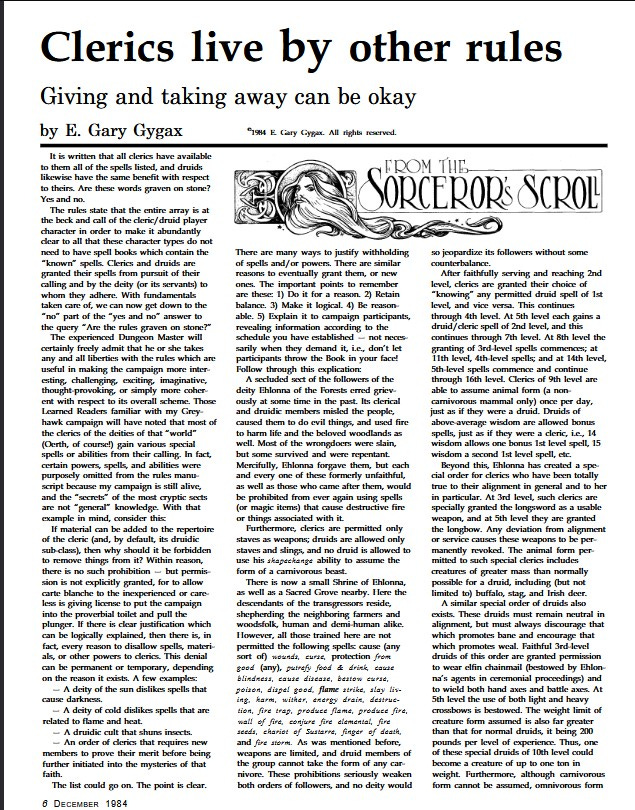Clerics and druids have access to all spells without needing spell books, as their powers are granted by their deities. While the rules allow flexibility, experienced Dungeon Masters may alter these to enhance gameplay. The balance of power is crucial, allowing for the removal or addition of spells based on character faithfulness and the campaign’s needs. This can lead to interesting dynamics, such as withholding spells from unfaithful clerics or druids.
Highlights -📜
Clerics and Druids’ Spells: Access to all spells without spell books.
DM Flexibility: Experienced Dungeon Masters can modify rules for better gameplay.
Balance is Key: Maintaining game balance is crucial when altering spells.
Faithfulness Matters: Rewards and penalties based on character faithfulness.
Spells Can Be Withheld: Justifiable reasons exist for withholding spells from characters.
Druidic Abilities: Druids have specific abilities based on their deities.
Character Dynamics: Faith and adherence impact character powers significantly.
Key Insights -🔍
Rule Interpretation: The interpretation of rules allows for creative gameplay, enabling DMs to adjust spells and abilities to fit their narrative. This flexibility can enhance player engagement and world-building.
Importance of Balance: Balancing the powers of clerics and druids ensures fair play within campaigns. Overpowered abilities can disrupt gameplay and frustrate players.
Faith-Based Mechanics: The concept of rewards and penalties tied to faithfulness adds depth to character development, motivating players to align actions with their characters’ beliefs.
Spell Withholding Rationale: Withholding spells can create tension and consequence, fostering character growth and moral dilemmas which enrich the narrative.
Druidic Restrictions: Specific restrictions on druidic abilities reflect their connection to nature and deities, emphasizing the importance of adherence to their beliefs.
Dynamic Character Relationships: The interactions between characters and their deities can lead to compelling narratives, affecting character choices and alliances.
Narrative Control: DMs should control the flow of information and spell access to maintain suspense and engagement, reinforcing the idea that knowledge is earned, not given.






